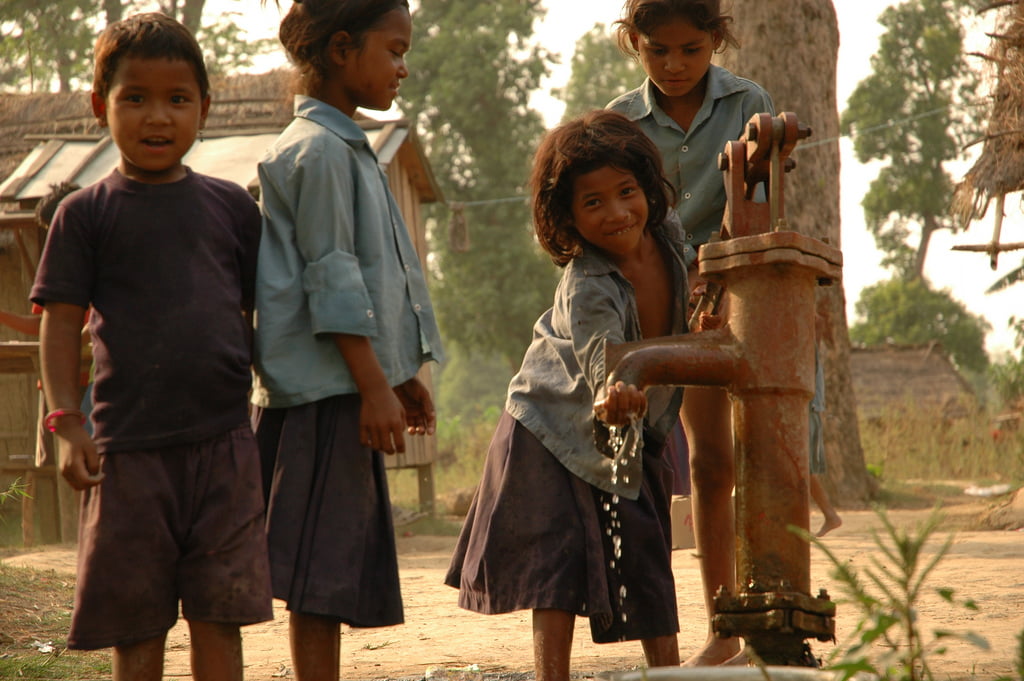“The world we live in is made of two populations. A population of haves and a population of have nots. It’s about 15 percent haves and 85 percent have-nots. The haves spend almost all day looking for more things to have. The have-nots spend most of their day trying to get through the day. This has got to change.”
That is Israeli professor Mark Talesnik speaking. And unlike most people, he has actually gone ahead and done something about the world’s unfairness.
Related articles
- One Woman’s Amazing Quest To Transform The City Of Acre
- Award-Winning NGO Brings Israeli Innovation To Africa
Talesnik founded the Engineers Without Borders (EWB) program at the Technion university in Israel, which sends engineering students to impoverished villages around the world to create sustainable and long-term solutions to pressing problems, such as water shortage.
“I had zero impact. And that kept me up at night.”
Explaining why he founded EWB Israel in 2008, Talesnik says: “I’m an engineering professor and I’ve done the university thing for the last too many years. I wrote papers most people never read. And I wrote proposals that were not funded. The thing is, I had zero impact. And that kept me up at night. So 10 years ago, I decided I was going to leave a mark.”
Talesnik describes one instance of student engineers who managed to improve the living conditions of an entire village in the eastern tip of Nepal. “There are one thousand people in Namsaling,” says Talesnik, “they live on less than $1.2 a day. They have no electricity, no sanitation systems and poor water quality.”
“So our students looked at the root causes for most of the big problems in that village,” he adds, “and they realized that the common problem was the lack of clean energy. So the answer was to find a cleaner energy source. And they decided to implement household biogas reactors.”
Don’t get all squirmy. It’s shit.
Asked to explain how a biogas reactor functions, Talesnik smiles and says: “A biogas reactor is a circular hole in the ground filled with organic material. Don’t get all squirmy, it’s shit. But it’s shit for change.”
Sign up for our free weekly newsletter
SubscribeIt turns out that if you feed this bioreactor about 50 kg of organic matter per day (human and animal), it gives five to six hours of cooking fuel per day (methane). In addition, the sludge that comes out of the reactor is full of nutrients, so it’s perfect for preparation of organic fertilizer.
“The outcomes have been huge,” says Talesnik. “We’ve so far built 62 reactors.”
“Teaching our students to have a social conscience”
Talesnik’s Engineers Without Borders are now also actively involved in development projects with the Bedouin community in Israel’s Negev desert, as well as as elsewhere in the Middle East.
“We are training our graduate engineers to be not just engineers, but leaders in society,” Talesnik adds. “We teach them how to do engineering with a soul.”
Engineers Without Borders was first launched in France in 1980 and has since been launched in over 50 countries.
[youtuber youtube=’http://www.youtube.com/watch?v=Hc7sktETJEs’]
Photos: courtesy
Related posts

Rehabilitation Nation: Israeli Innovation On Road To Healing

Israeli High-Tech Sector 'Still Good' Despite Year Of War






Facebook comments